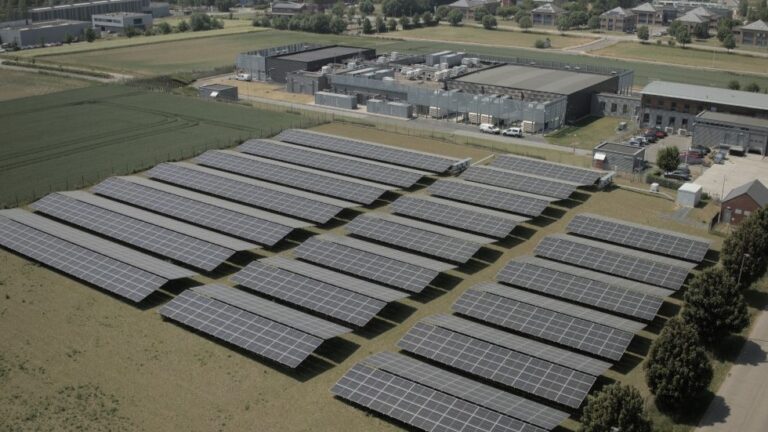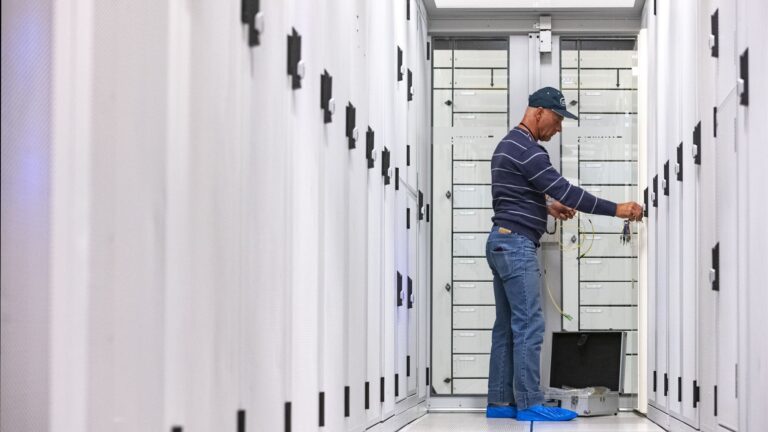In charge of the construction of the fifth data center at LCL Brussels-North areProject Department Manager Floris Smits and his team. “We have chosen a building design that supports our continuous growth. LCL Brussels-North is perhaps the most connected place in Belgium, and we aim to maximise space for both new and existing national and international enterprises. By offering on-site expansion opportunities, we grow together with our customers. This new data center, centrally located, will solidify our position as the most important hub in Brussels.”
How does the construction of LCL’s fifth data center in Brussels-North contribute to the future needs of national and international customers?
Floris Smits: “At LCL, we’re committed to staying ahead of the curve by adopting proven, cutting-edge technologies swiftly. Our new Brussels-North 5 data center exemplifies this approach. We’ve designed it with a modular construction strategy. This means the building will be fully finished on the outside, but the interior is developed in phases. Initially, we’ll have an operational data center on the ground floor, while the upper levels will remain in shell form and developed gradually to meet the specific needs of our customers. This phased approach allows us to offer tailor-made solutions and adapt quickly to market demands.”

“We adopt a modular construction approach: the upper levels of our newly built data centers retain a shell form, and are furnished gradually, allowing us to accommodate the specific needs of our customers and provide tailor-made solutions from the outset.”
Is there a growing demand for such tailored solutions in the market?
Floris Smits: “Absolutely. The market is rapidly evolving, especially with the surge in AI development. Training and deploying AI models demands immense computational power and energy. Traditional air-based cooling systems are insufficient for these needs, making liquid cooling an attractive alternative. Liquid cooling is more efficient as it conducts heat better than air, allowing us to maintain optimal operating temperatures even as demands increase. This shift not only meets the current requirements but also anticipates future advancements.”
“Liquid cooling also opens up new avenues for sustainability, such as heat recovery. Data centers generate a lot of residual heat. By capturing and repurposing this heat, we can warm nearby businesses or residential areas, positioning our data centers as green energy sources. At LCL Brussels-North, we are actively exploring ways to implement this sustainably across all our sites, turning our data centers into contributors to the local energy ecosystem.”
LCL has a long history and a strong track record – which makes it a very trusted partner indeed. How does this experience influence your approach to new projects like Brussels-North 5?
Floris Smits: “LCL has been here in Brussels-North – and other locations in Belgium – for over 20 years, steadily building our ecosystem rack by rack. Each project has grown in scale, reflecting our expanding capabilities and our commitment to meeting customer needs. For the new building, we aim to have a ‘day one’ data center by the end of 2025, with the building completed and a basic technical package in place. This will allow us to hand over spaces that customers can move into immediately. This expansion is a statement of LCL’s growth and our vision for the future, continually asking ourselves: ‘What can we do next?’”


